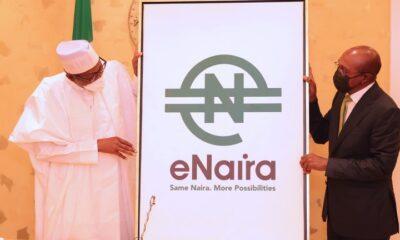In June, only a few months after rising to become President of Tanzania, Samia Suluhu Hassan directed the country’s central bank to begin working on a Central Bank Digital Currency (CBDC), even though the nation had previously issued a ban on cryptocurrencies in 2019. Before the end of the month, a spokesperson for the Bank of Tanzania made a statement to Reuters that “[t]he bank is working on the directives given.”
“The country’s central bank says that it is already adapting, despite the fact that 2019 guidance indicated that cryptocurrencies weren’t recognized by law. Within a few months of the new president’s transition into power, she is talking about radically changing the country’s view on cryptocurrency and digital assets. Within a month of those comments, the central bank has begun working on the directive. Now, how fast that process will go likely depends on the resources committed to the transition. But, it is worth noting that a nation has reversed course, then doubled down, on digital assets all in less than six months. For that reason, Tanzania’s development on this issue should be something worth following,” said Richard Gardner, CEO of Modulus, a US-based developer of ultra-high-performance trading and surveillance technology that powers global equities, derivatives, and digital asset exchanges.
“In the financial sector, we have witnessed the emergence of blockchain technology or cryptocurrency… Many countries in the world have not accepted or started using these currencies. However, I would like to advise the central bank to start working on those issues. Just be prepared,” President Hassan said during her remarks at the opening of a new central bank branch in June.
“Any leader directing such a rapid, radical departure from previous guidance has to believe that it will pay dividends in the future. It’s a smart play. Suddenly, the tech world is abuzz about Tanzania. When’s the last time that’s happened?” asked Gardner.
Modulus is known throughout the financial technology segment as a leader in the development of ultra-high frequency trading systems and blockchain technologies. Over the past twenty years, the company has built technology for the world’s most notable exchanges, with a client list which includes NASA, NASDAQ, Goldman Sachs, Merrill Lynch, JP Morgan Chase, Bank of America, Barclays, Siemens, Shell, Yahoo!, Microsoft, Cornell University, and the University of Chicago.
“If the government can pull off the rapid and successful development, testing, and execution of a central bank digital currency, it is going to turn heads, particularly if it is in conjunction with a more general change in policy and regulation over digital assets. The president is right. Digital assets are here to stay, and they are the future of finance. That means there will be industries built around supporting it. While Tanzania doesn’t have many of the more natural advantages that some other African nations enjoy in terms of infrastructure, a swift change in policy could kick start something that resembles a movement, and that could only improve the outlook for tech in Tanzania,” opined Gardner.


 Forex2 weeks ago
Forex2 weeks ago


 Naira1 week ago
Naira1 week ago
 Naira4 weeks ago
Naira4 weeks ago
 Company News4 weeks ago
Company News4 weeks ago




 Naira2 weeks ago
Naira2 weeks ago
 Billionaire Watch1 week ago
Billionaire Watch1 week ago




 Naira3 weeks ago
Naira3 weeks ago




 Naira1 week ago
Naira1 week ago



















